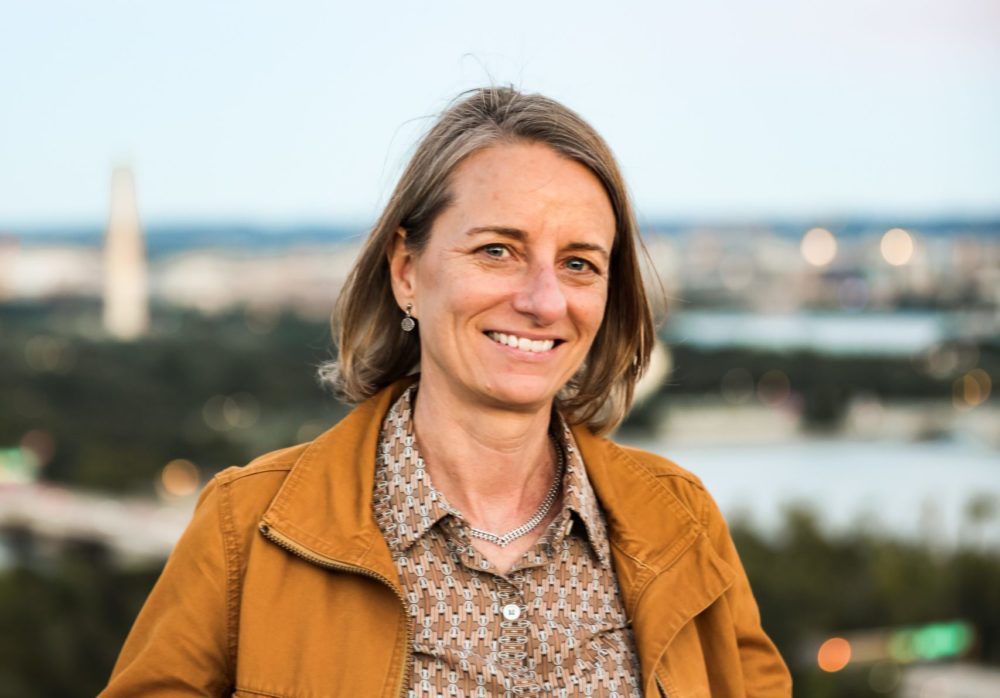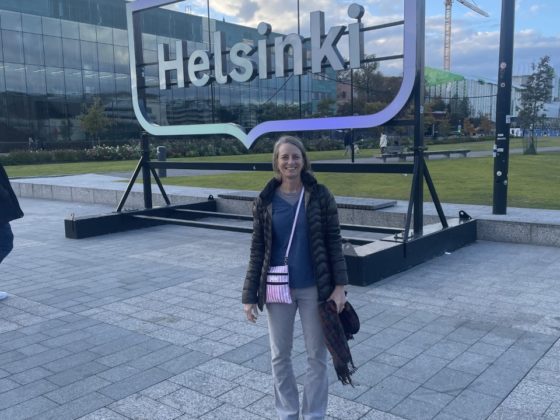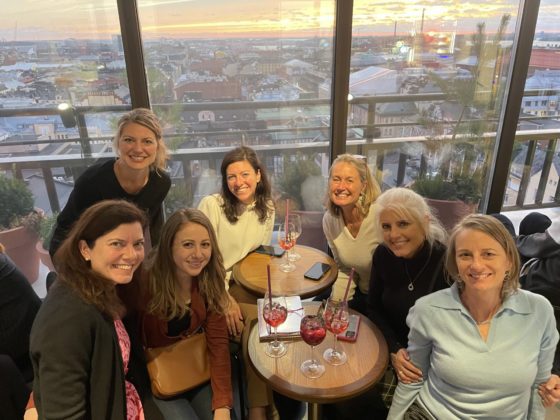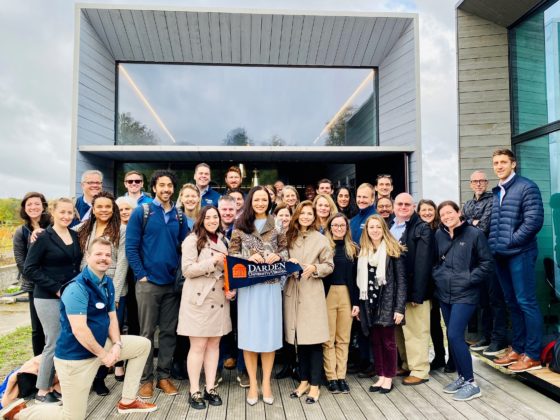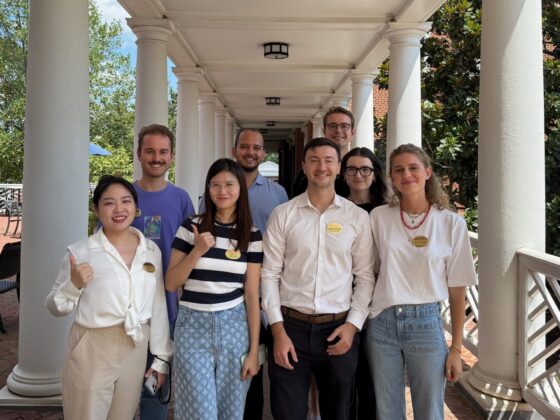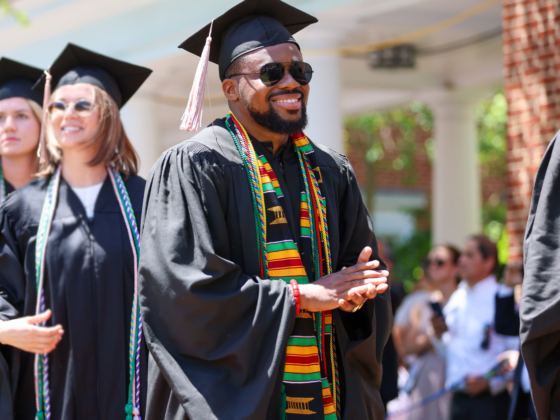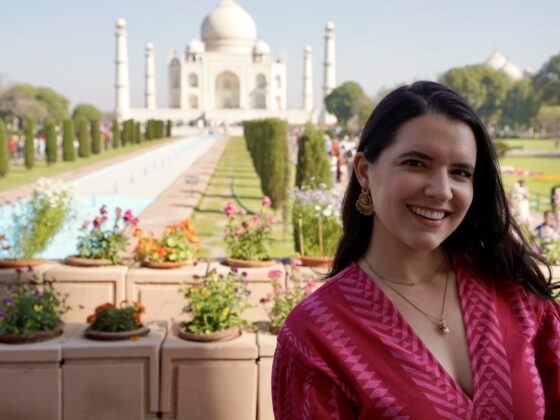Amy Egeli (Class of 2023) is a current EMBA student who recently completed a Global Residency Course in Finland and Estonia. Outside of classes, Egeli works as Director of Systems Engineering at ASEC Inc. After returning from her Global Residency Course, Egeli shared a little about her experience with the Center for Global Initiatives.
Tell us about yourself Amy. Why did you decide to do a global residency in Finland/Estonia?
I have traveled all over the world with my airline pilot father and the military, but never to Finland or Estonia. An October schedule meant that we could expect reasonable weather without tourist crowds. COVID restrictions early in the program narrowed the opportunities for in-person travel so Finland and Estonia made perfect sense for me.
How does business in Finland/Estonia differ from America?
Finland considers the circular economy and sustainability an important part of their society. We talk about sustainability in America, but we really do not execute policy around this concept. I had never heard of the circular economy, which involves reuse, repair, and recycling of existing materials and products for as long as possible. This model extends into all facets of consumption and production in Finland. Coming from our energy hungry, throw-away culture, I found the concept refreshing. My favorite visit was to a waste management company called Remeo. Located beside an energy company, Remeo provided waste that could be burned to produce electricity and developed a profitable method for recycling waste from building materials. Who would have thought that waste management could be so interesting?
I found Estonia fascinating. I envisioned a country still emerging from the post-Soviet era. I discovered a progressive country with modern amenities and world-class museums and restaurants. Estonia’s innovative e-Estonia business model attracts companies from around the world to start a business in their country. Their fully digital economy makes registering for and doing business in Estonia easy, with continuous innovation around security and encryption. While we still FedEx and fax documents between businesses in the US, I can only hope that we will one day digitize our business processes in a manner similar to Estonia.
What are some of your biggest takeaways from this program? What will you take with you into your current profession?
I entered Darden to expand my horizons and gain different perspectives in business beyond my current environment in Naval aviation acquisitions. Visiting businesses in places like Finland and Estonia remind me that innovation occurs all over the world. In many places, cultural norms or circumstances like geographic location enable progressive policies that benefit those societies but might not be accepted in the US. In my current profession, I can apply learnings from each company we visited to improve the productivity and sustainability of my own profession.
Beyond the direct learning atmosphere, how did your experience differ from your regular coursework at Darden?
Much of the coursework at Darden is theoretical. With no right or wrong answer, we discuss approaches and possibilities without experiencing the intimate details of the case in real-time. Through the global residency, we met CEOs at various stages of their business. We witnessed the results of innovation at Remeo and Varjo, which both produce augmented reality technology. On the other hand, we felt the need for innovation at Hilleberg Tents, where products are still hand-made by a dwindling workforce. The opportunity to see, touch, and feel the culture in those businesses brings a whole new dimension to learning beyond the classroom.

